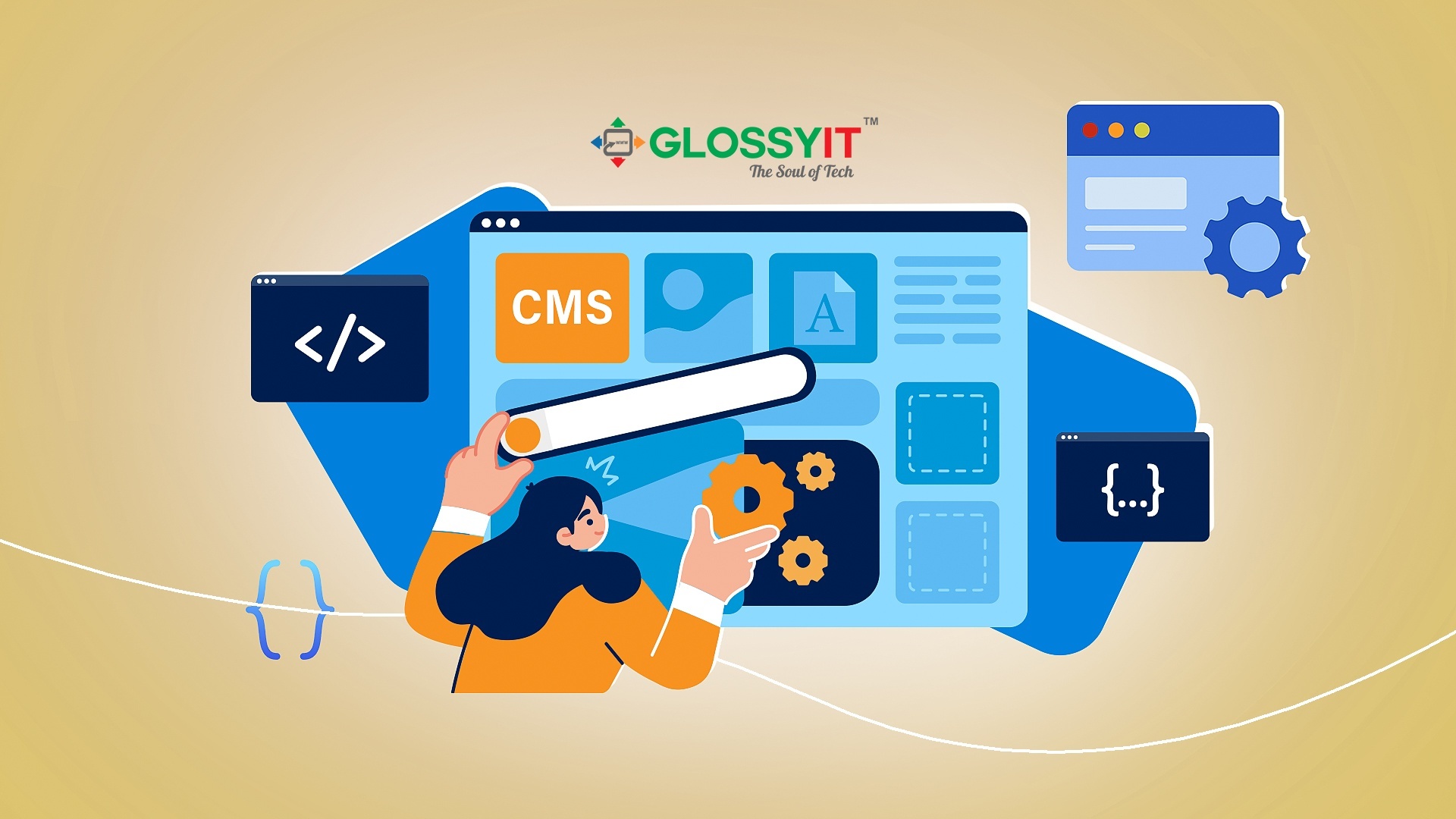- Blog
Content Management in Custom CMS

A Custom CMS, or Content Management System, is important software designed to streamline a business's digital content production and distribution. This specialized CMS allows you to efficiently create, organize, edit, approve, and publish content tailored to your business needs. While open-source CMS can be beneficial for beginners, they may not fully meet all your requirements. In such cases, opting for a custom CMS is advisable to ensure future growth and success.
Before jumping into building a custom CMS process, you just need to understand the primary reasons behind Content Management in Custom CMS.
Purposes of Content Management in Custom CMS
You can add the features you require and remove the ones you don't when you build a custom CMS as a bespoke solution. Additionally, it allows you to build the interface with your staff's needs in mind, making it incredibly easy to use.
Additionally, a few other purposes are mentioned below:
Functionality
You can effectively manage your content for better functionality. Due to the limitations of existing CMS platforms, it is wiser for you to make a concrete plan for building a customized CMS. As a result, a unique content management system will provide you with a full set of customized features for better user engagement.
Performance
You need to give priority to better site optimization in the long run. To achieve this, we recommend a customized content management system that will provide better performance than off-the-shelf CMS in the market. Except for that, your site performance will also be enhanced in connection with better speed and controlled resource management.
User-Friendliness
If you plan to use an existing content management system, we recommend you think twice. A notable point here is that an off-the-shelf content management system retains numerous bulk features that you would probably never use at all.
On the other hand, it’s always feasible to create a custom CMS that can build a user-friendly interface to reflect your brand identity with only the necessary features you need.
Better Security
With a ready-made content management system, it is often risky for websites as cyber attackers are more prone to launch frequent strikes on this type of website. In contrast, one of the biggest purposes of creating a custom CMS is its less threat to security issues as the underlying code for this type of CMS is private and state-of-the-art.
Easier Scalability
Scaling an off-the-shelf CMS might be difficult due to limitations or various restrictions. However, with a customized one, you can create a platform that meets your company's demands both now and on the road. This would also guarantee easier scalability.
A Complete Procedure for Content Management in Custom CMS
You should keep in mind that a custom CMS building procedure requires a multi-phase approach. It is recommended that you maintain the following sequence:

Formulating the Idea
Making a powerful and customizable CMS requires a clear concept formulation to begin with. Here you need to evaluate your current architecture, form contemporary content management procedures, and select the kind of content you require for assistance. Then again, you should specify any project objectives that will determine its success or the desired outcome in comparison to what the store-bought alternatives provide. Once the scope is specified, you will have a formal plan to move forward.
Planning Development
Typically, planning development entails laying down the features and specifications unique to the content management expectations. In addition, you should choose a tech pile, evaluate costs, and create a schedule. Moreover, if you need to win over other corporate executives, develop a business case. You should also decide which KPIs you'll use to extend performance.
Drawing Prototypes & Workflows
In this stage, your main target should be to create a summary of the total architecture and content management workflows. Just after that, you can formulate prototypes and evaluate them for serviceability.
Launch the CMS Development Process
If you have completed the above steps, then you are ready to launch the CMS development process. Here, you need to choose between two execution strategies. A platform-based outcome is expected to perform better if the existing CMS feature can meet your expectations. Again, developing a total custom CMS is superior if you require a more individualized solution with plugins that aren’t commonly available from the ready-made solutions.
Conduct Quality Assurance & Testing
In this step, you will create test cases and scenarios that you may use to evaluate the first content management system design's functioning. Also, you can analyze usability, usefulness, unifications, and complete performance. After that, you need to search and resolve any problems found to strengthen the CMS before launching it.
Execute Data Migration
As you are now ready to upgrade to a custom CMS, you must relocate your content and relevant data. However, you first need to search for the exact content that you want to migrate and you can do it by selecting a small sample. Then, you need to look for any discrepancies which may arise from those data. If everything goes in the right direction and with the proper mindset then it will be easier to migrate all of your necessary content to their new hub.
Execute User-training & Launch
As soon as your content management system is prepared for release, you must write instructions for its use in document form. Furthermore, it makes sense to provide training sessions to train users with the new platform and its procedures since this expedites adoption and lowers the learning curve. Besides that, you should gather input along the route to identify areas that need work and implement any helpful adjustments. Consequently, you can effectively launch the new content management system.
Give Post-launch Assistance
Keep in mind that, it is your responsibility to help your users with regular assistance regarding customized CMS. In addition, you should receive feedback from your users and identify the solutions for effective customer management. It is also important to perform systematic updates to the CMS to bridge the gap between the company’s needs and user expectations. Also, the updating aspect will resolve the security issues too.

How Glossy IT Can Give You the Best Service for Developing Custom CMS
You may find the above process a bit technical yet complicated, but don’t worry; we've got your back. At Glossy IT, our team of expert and experienced professionals has been working relentlessly to provide the best Custom CMS Service to our respected clients all over the world. You can seek any assistance from our dedicated support staff and we are ready to provide you with the best possible way out. Feel free to contact us for a perfect CMS solution.
Summary
At this stage, you'll likely have total control over your CMS, so you can easily modify it to meet your changing needs as your business expands and changes. Then again, one last thing to remember is the cost which includes team costs, software costs, and server costs. However, it may vary in numerous ways. As a result, you should keep this aspect in mind as well. Last but not least, we will always recommend you seek expert help if you ever feel confused about any issue regarding the new content management system.

















